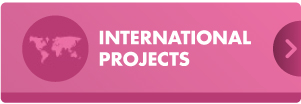What are they?
The phrase Female Genital Mutilations (FGM) refers to all forms of partial or complete removal of female external genitals, or other modifications of the female genital organs, performed for cultural or other non-medical purposes.
FGMs are an extremely serious violation of women’s and girls’ human rights. They consist in the partial removal of a healthy organ (the clitoris) and sometimes also of the labia minora (inner labia). In the most invasive form of FGM, which is called “infibulation”, the labia majora (external labia) are cut and partially sutured. This reduces the vaginal opening to a very small hole and has very serious consequences for sexual relationships and for childbirth. Even in their least invasive forms (for instance, ‘pricking’, which involves the compression of the clitoris and of the labia minora, or other practices such as piercing, incising, scraping or cauterization), FGMs involve an intervention on a healthy and highly sensitive organ, unlike male circumcision, which is performed simply on a skin fold, not on an organ or a muscle.
What are the complications of the FGMs?
Physical problems:
- Painful menstrual cycles
- Difficulties and pain when urinating
- Infections of the urinary tract
- Impossibility or difficulty in undergoing gynaecological examinations
- Vaginal scars
- Vaginal constriction
- Partial or complete inability to experience sexual pleasure
- Problems during childbirth, risk of undergoing caesarean and/or premature birth
- Risk of serious haemorrhage and post-partum death due to difficulties associated with the healing of the cut
Psychological and relational problems:
- Low self-esteem
- Depression
- Anxiety
- Post-traumatic stress disorder
- Other psychological problems (e.g. fear, lack of trust and anger towards family members, self-harm, psycho-somatic disturbances that limit the ability to fall pregnant etc.)
Where are they practiced and why?
FGMs are mainly present in 28 sub-Saharan Africa countries, but also in Oman, Yemen and Indonesia (see map).
Women and girls who have undergone or risk to undergo the practice live everywhere in the world, including Italy and Europe.
In the communities where FGMs are performed, it is believed that girls that did not undergo the practice cannot get married, have children and lead a respectable life. Cutting the clitoris, it is believed, protects girls from the negative consequences of their uncontrollable and promiscuous “sexual appetite”, which may damage their possibility of getting married or cause them to be repudiated once they are married.
Although the practice is now outlawed in all the African countries where it is widespread and in many countries that receive immigrants, including Italy, FGMs keep being performed due to a complex network of religious and/or cultural factors, and especially because they are perceived as a social norm whose goal is represented as positive for the women themselves. In order to counter this phenomenon, it is therefore necessary to undermine such convictions, since it is in fact amply demonstrated that women and girls who did not undergo the practice can not only get married, have healthy children and be respected, but are also free of pain, live better lives and respect their husbands. Because they did not suffer traumas or other medical complications, they can study and find a good job to contribute to the family economy, without incurring in costly and threatening health problems.
Female Genital Mutilations and International Protection
For all these reasons, the practice is today recognised by the UNHCR (United Nations High Commission for Refuges) as a form of persecution against a specific group – women and girls -, which can cause death or permanent damages, and can therefore be considered as a reason to obtain international protection.
Also the Istanbul Convention on gender-based violence and the law decree of 18th august 2015 nr. 142, enacting the EU guidelines on “Reception” (Dir. 2013/33/EU) and “Procedures” (Dir. 2013/32/EU), indicate that women who have undergone FGMs and girls who are at risk of undergoing them, are possible recipients of international protection.
In case of girls or children, the protection application may be lodged by the parents and/or guardians, and may therefore be extended to cover those who have custody over the minor.
Also the activists who fight for the abandonment of FGMs and who can demonstrate that they are persecuted as a consequence of their activism may apply for international protection.
FGMs are also a crime under Italian law, punishable with a sentence of 4 to 12 years imprisonment (art. 538 of Criminal Law)
Where can I find assistance, medical treatment and support?
- In Italy, you can find assistance and obtain medical treatments in all hospitals, clinics and family counselling. These are free services and are provided to women, girls and children even when they do not possess a permit of stay or other valid IDs. Since FGMs are a serious lesion and may have serious consequences on the health and the life of the person who suffered them, the National Health Service is obliged to provide help to all those in need.
- In Italy, you can find protection and support in all the Women’s Shelters and Centres Against Domestic Violence that are present all over the country, since FGMs are a very serious form of gender-based violence.
Women’s Shelters and Centres Against Domestic violence provide:
- Assistance in getting to know your rights and the services that are available to you.
- Legal advice and assistance to:
- Apply for international protection for yourself or a girl/child under your custody
- Prevent your daughter or any other girl/child/woman from undergoing or re-undergoing the practice (in Italy, also a woman who has already suffered an FGM may request protection, since she may be “opened”, e.g. for giving birth, therefore risking a serious haemorrhage).
- Emotional, relational, psychological, social and cultural support: the qualified workers of our Women’s shelters and Centres Against Domestic Violence, with the help of cultural mediators and women interpreters if necessary, can help you decide what to do in order to protect yourself and/or your daughter, so as to live a good life, free from the threat of violence, mutilations and the emotional blackmail and pressure of your family. If necessary, our Women’s shelters and Centres Against Domestic Violence can help you build new social relationships and enter a social and professional network that may allow you to be self-sufficient and secure. You will be able to talk to many women, also from your same cultural background: women who chose to request protection and support to face the consequences of FGMs, women who chose to protect their daughters from these violent and damaging practices.
- Reception in a Women’s shelter for you, your daughters and your sons, if you can no longer stay with your family or community because they want to force you or your daughter to undergo FGMs. In Italy, many organizations that run Women’s Shelters may offer you accommodation in a safe place where you will be provided food, lodging and medical treatment, in case you were forced to leave your home to protect yourself or your daughters from gender-based violence.


